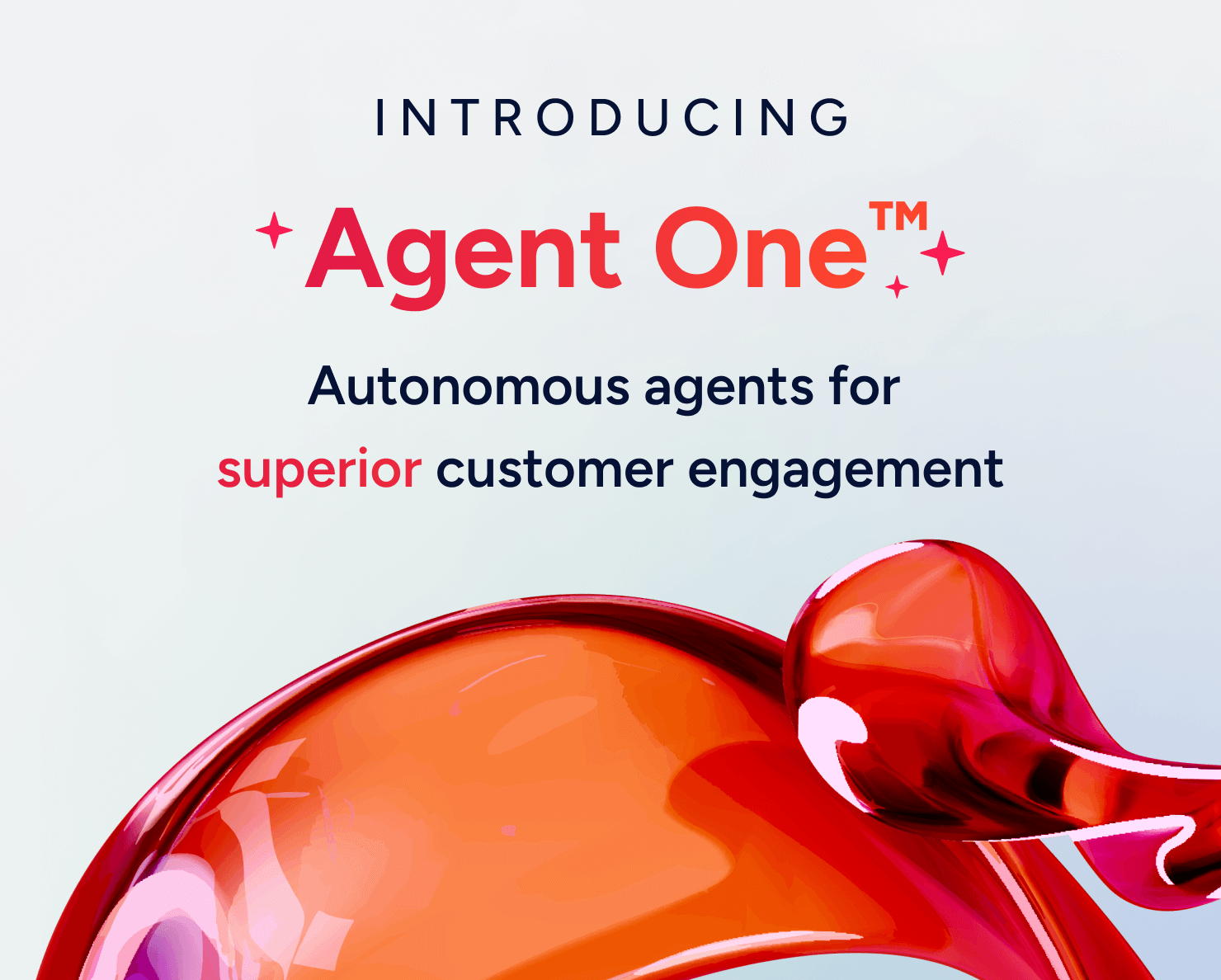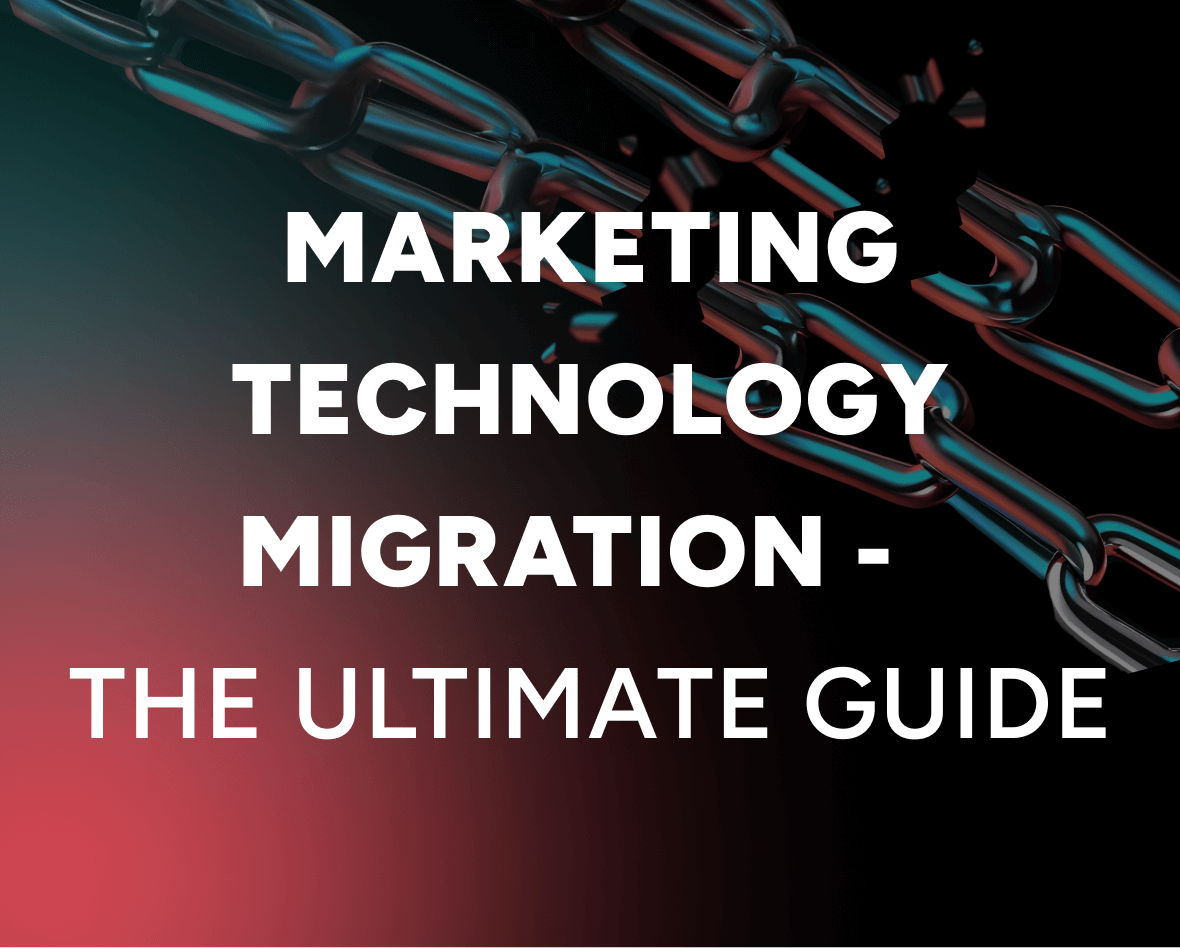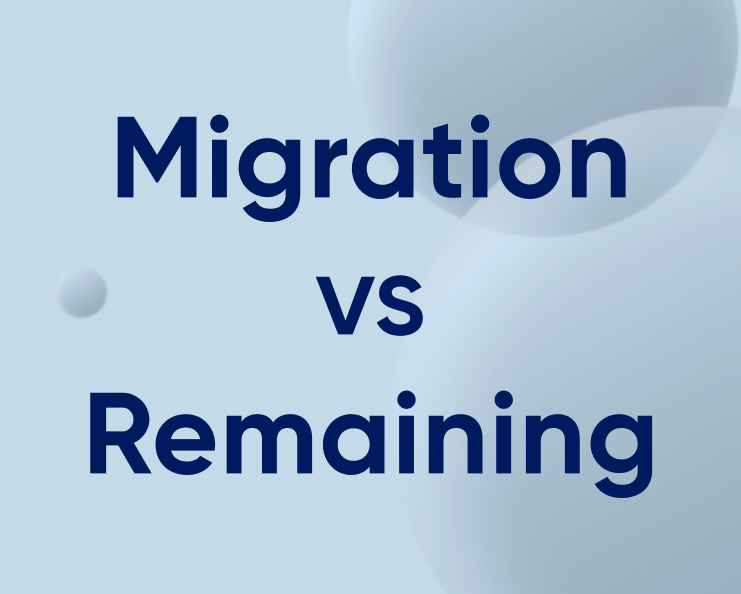Every marketer’s essential guide to conversational marketing
79% of consumers prefer live chats due to their instant and conversational nature, enabling two-way conversations between customers and the brand.
Updated on 16 Aug 2024
The popularity of conversational marketing is on the rise, and it’s easy to see why customers are drawn to it: It’s quick and efficient and significantly enhances the customer experience by making interactions more immediate, personalized, convenient, and engaging.
But what exactly is conversational marketing, and why is it something businesses should focus on?
This blog will share everything you need to understand conversational marketing, its benefits, and the conversational marketing trends to keep up with in 2024. Let’s get started.
What is conversational marketing?
Conversational marketing is an approach to customer engagement that uses real-time conversations and personalized interactions to facilitate a more direct and meaningful connection between businesses and their customers. This strategy leverages various communication channels such as live chat, messaging apps (e.g., WhatsApp, Facebook Messenger), social media platforms, voice assistants, and chatbots to engage with customers at various touchpoints throughout their journey.
For example, chatbots quickly help customers by answering questions and assisting customers. This direct communication helps customers make decisions faster, increasing sales and driving customer loyalty. Chatbots used in conversational marketing can either be powered by AI or not. Users can train the bot, enabling it to answer customers automatically.
The evolution of conversational marketing
Conversational marketing started with simple live chat functionalities on websites. These basic, real-time messaging tools allowed customers to communicate directly with customer service representatives. The goal was straightforward: To provide a quicker, more direct line of communication than email or phone calls.
Marketers quickly noticed the potential of this direct interaction—an increase in engagement and conversion rates and higher customer satisfaction scores.
As the digital landscape evolved, marketers started to leverage customer data to tailor conversations, making interactions more relevant and impactful. This personalization further enhanced customer satisfaction and loyalty, as customers felt their unique needs and preferences were being recognized and catered to.
One of the biggest developments in conversational marketing was chatbots. These automated messaging systems were designed to simulate human conversation, enabling businesses to handle inquiries and engage with customers 24/7. Chatbots could manage various tasks, from answering frequently asked questions to guiding customers through purchasing. This development allowed marketers to scale their conversational marketing efforts, reaching more customers without compromising the quality of interaction.
On the other hand, AI chatbots brought a new level of engagement to conversational marketing. Unlike their predecessors, AI chatbots could learn from interactions, understand natural language, and provide more accurate, contextually relevant responses. This enabled brands to offer a more nuanced, conversational experience that’s even closer to human interaction.
These chatbots can quickly answer questions and help customers make purchasing decisions or learn details about delivery. You can use it on different channels such as WhatsApp, Instagram, and web and app for two-way dialogue.
Six benefits of conversational marketing
So, why is conversational marketing essential for marketers?
Here are six reasons why:
1. It enhances customer engagement
Conversational marketing fosters direct, real-time interactions between businesses and customers, leading to higher engagement. By enabling instant messaging across various channels, such as WhatsApp, SMS, and web, you can promptly address inquiries and assist with personalized customer experiences, resulting in more meaningful connections with users.
2. It improves lead generation
With conversational marketing, you can capture valuable information and qualify real-time leads by engaging visitors to your store or website through chat messages. Conversational marketing can assist new and anonymous users and help them find what they are looking for.
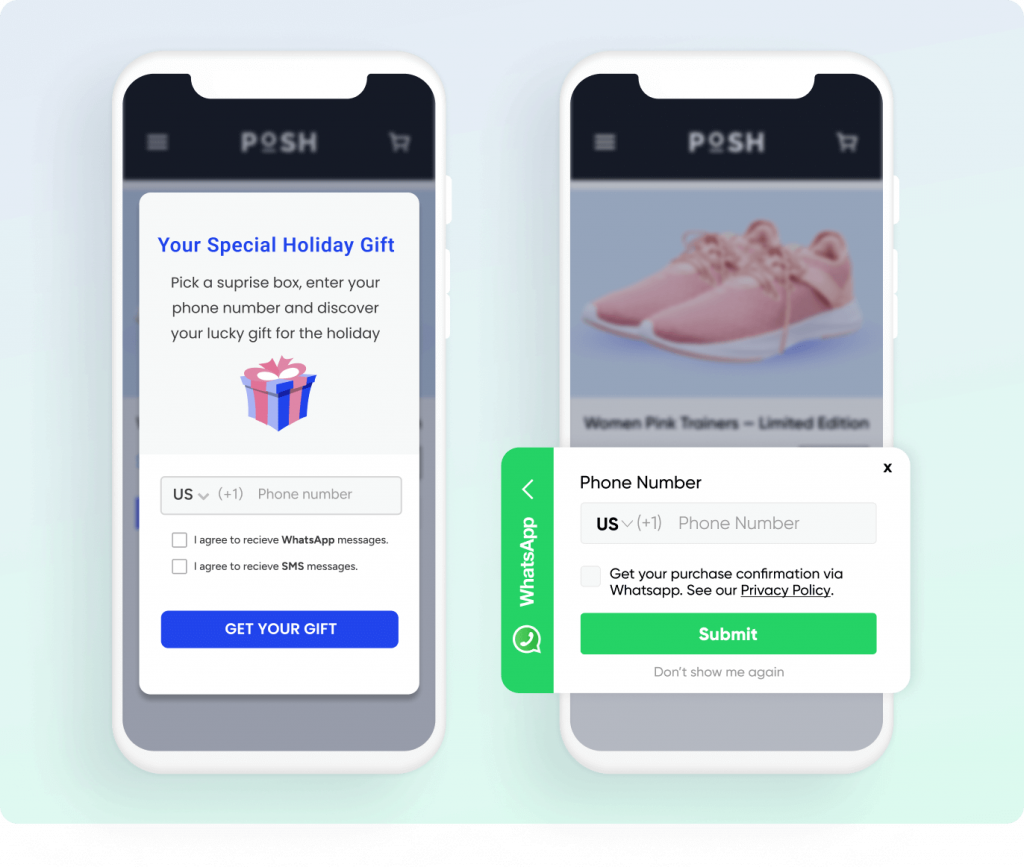
3. It enables teams to work more efficiently
Whether powered by AI or not, conversational marketing chatbots streamline communication processes, allowing you to automate responses and manage customer inquiries effectively. By training chatbots to understand common queries and provide relevant answers, your team can save time and resources while maintaining improved customer service.
4. Businesses can increase conversions
By proactively engaging visitors through chat messages and guiding them through the purchasing process, you can remove barriers to conversion and facilitate seamless transactions, even with anonymous visitors. The personalized nature of conversational marketing encourages trust and confidence, leading to higher conversion rates and faster purchasing cycles.
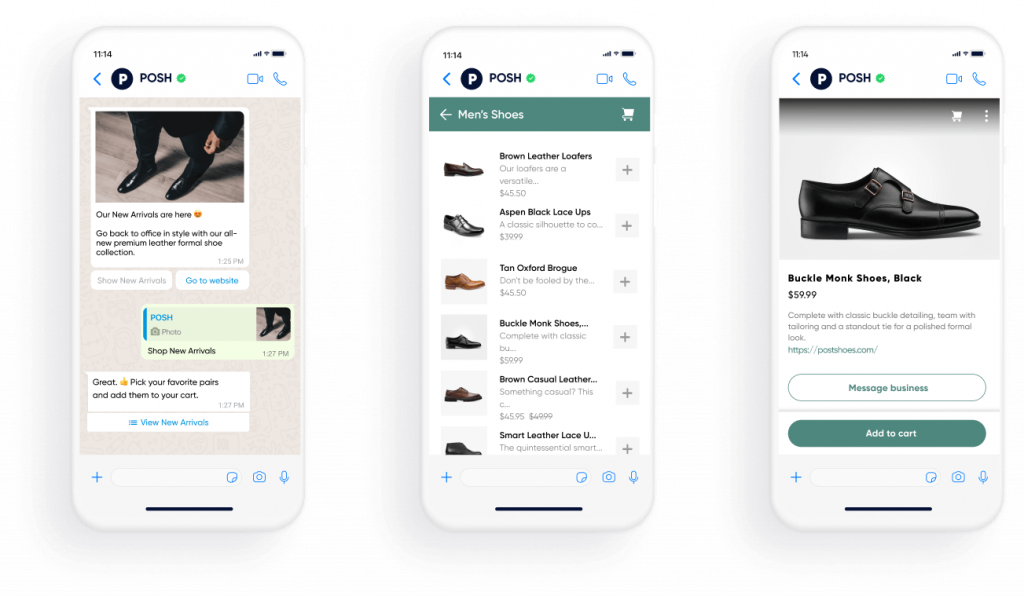
5. You can reach customers on their favorite channels
Customers do 90% of their research online through TikTok and then buy products in-store.
Customers use different touchpoints when it comes to shopping. It’s essential for you to meet customers’ expectations and connect with them wherever they are. By leveraging a variety of channels, including SMS, WhatsApp, and onsite messaging, you can engage customers in their preferred environment, ensuring a seamless and integrated experience.
By employing a multi-platform, conversational marketing strategy, brands can enhance the customer experience and ensure that conversations are contextual and relevant. That way, brands can build stronger relationships, improve customer satisfaction, and drive more conversions.
6. You can personalize your conversational customer experiences
Personalization capabilities within conversational marketing automation enable you to deliver timely, relevant, and highly personalized messages and responses, making every customer feel seen, heard, and valued. This level of personalization not only saves time by providing customers with the information or assistance they need more efficiently but also significantly increases customer loyalty and Customer Lifetime Value (CLTV).
By leveraging the data-driven insights gathered through conversational interactions, you can create a more engaging, satisfying, and loyalty-inducing experience, ensuring customers are more likely to return and engage with your brand repeatedly.
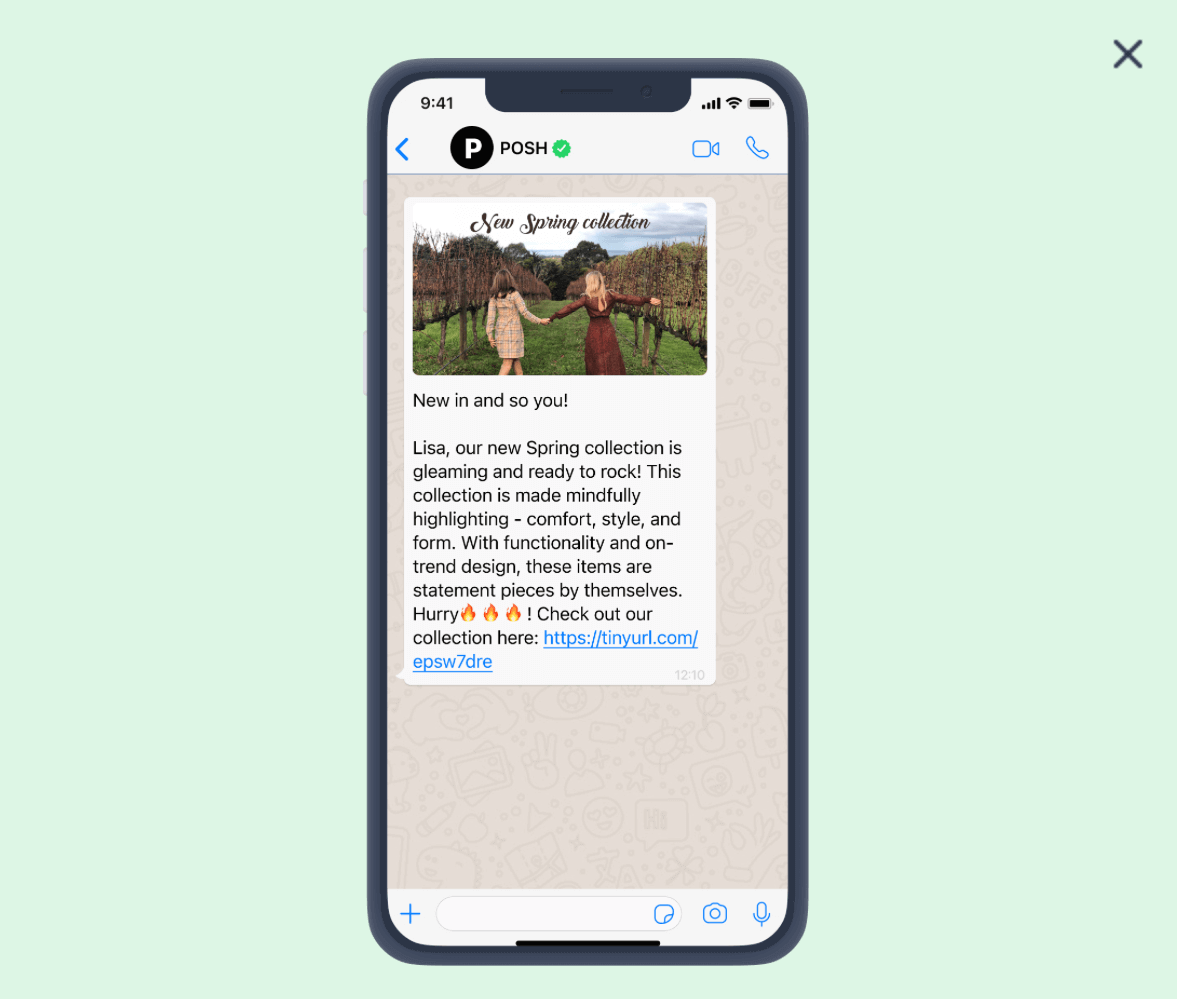
Best practices for engaging customers through conversational experiences
Developing a conversational marketing strategy is essential for marketers looking to engage with users across their favorite channels. Let’s take a look at some actionable conversational marketing best practices that will resonate with your brand and audience.
- Use interactive product recommendations
Providing relevant product recommendations through popular channels such as WhatsApp, SMS, and email creates an engaging dialogue with customers. By using these platforms, you can seamlessly integrate personalized product recommendations into their customers’ daily lives, making the discovery process both convenient and tailored to individual preferences. Additionally, offering customers the opportunity to ask questions and seek advice within these conversations creates a comprehensive end-to-end experience.
By crafting these interactive, conversational experiences around product recommendations, you can effectively guide customers through the buying process, making it as smooth and enjoyable as possible.
- Optimize your conversational marketing for mobile with SMS and WhatsApp
SMS and WhatsApp are the main communication channels because 91% of adults interact with brands using their smartphones.
SMS and WhatsApp are not only widely used but also offer the immediacy and convenience that mobile users have come to expect. By optimizing for these channels, you can ensure your conversational interfaces are tailored to the mobile experience, featuring mobile-friendly design, responsive layouts for various screen sizes, and streamlined messaging flows that cater to touch interactions.
- Unify customer data for more interactive chats
Collecting and unifying customer data within a Customer Data Platform (CDP) significantly improves the effectiveness of your conversational marketing. Insider’s CDP serves as a centralized platform for all your customer data, pulling together information from various touchpoints across the customer journey. This consolidation of data enables you to get a holistic view of each customer’s preferences, behaviors, and interaction history, which is invaluable for empowering conversational marketing strategies.
With access to a unified data source, your conversational marketing efforts on platforms like SMS, WhatsApp, or onsite chat become more interactive.
Get started with Insider
Insider is a single platform for building individualized, cross-channel experiences designed to help marketers drive growth, retention, and revenue. Leveraging advanced AI and a suite of powerful marketing tools, Insider enables businesses to create highly personalized customer experiences across various channels, including web, email, SMS, and more.
With capabilities such as predictive segmentation, real-time personalization, and automated journey orchestration, Insider empowers marketers to deliver targeted content and offers that resonate with each individual customer.
Insider’s CDP ensures that all customer interactions are informed by a unified view of the customer’s journey. Whether you’re looking to enhance your conversational marketing efforts, optimize your web experience, or improve mobile engagement, Insider provides the tools and insights necessary to achieve measurable results and drive growth.
Interact with your customers via WhatsApp Commerce
Insider’s WhatsApp Commerce combines the power of customer data segmentation to enable brands to target users based on their interests and predicted behavior. It’s marketers’ favorite conversational marketing tool because it provides relevant and timely content that is more likely to convert.
Insider has built upon its market-leading capabilities to help brands grow their WhatsApp subscriber base with gamified templates and text-to-opt-in features. Other end-to-end capabilities like WhatsApp business platform, starting with account creation, template approval, advanced reporting, automation, frequency capping, WhatsApp intelligent virtual assistant, CTA messages, and more, strengthen Insider’s WhatsApp Commerce offering, thanks to their status as an official Meta Business Solution Partner.
Find out more
For more details on how Insider can help you reach your business goals with conversational messaging, schedule a demo with our team.
FAQ
An example of conversational marketing is a chatbot on a website that engages visitors in real-time conversations to answer questions, provide assistance, and guide them through the sales process.
The goal of conversational marketing is to facilitate personalized, one-on-one interactions between businesses and customers, leading to higher engagement, better customer satisfaction, and increased conversions.
A company would use conversational marketing to humanize customer interactions, deliver real-time support, gather valuable insights, and streamline the buyer’s journey by providing immediate assistance and information.
WhatsApp conversational marketing involves using the WhatsApp messaging platform to engage with customers, offer support, provide product recommendations, and facilitate transactions through conversational interactions.
Conversational marketing can be effective when implemented correctly, as it enables businesses to build meaningful relationships with customers, address their needs in real time, and guide them toward purchasing decisions.
Conversational marketing differs from traditional marketing by focusing on personalized, two-way interactions rather than one-directional communication. It prioritizes engaging with customers in real-time, understanding their preferences, and providing immediate assistance instead of mass broadcasting messages to a broad audience.

